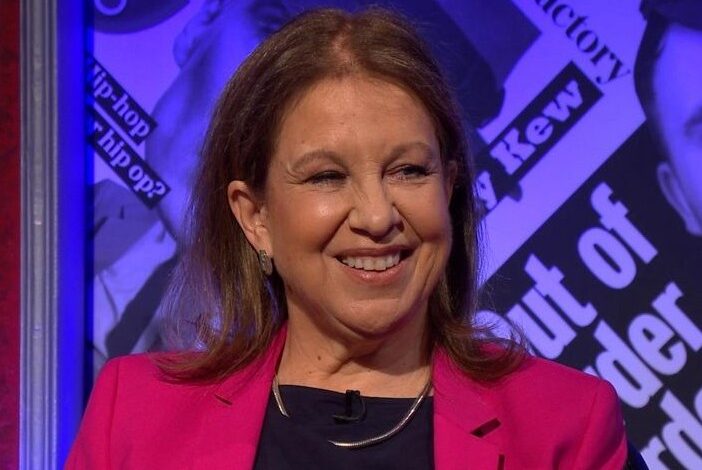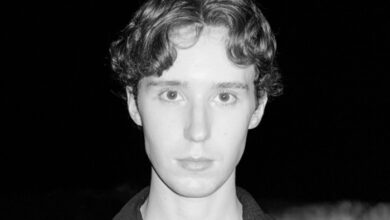Lyse Doucet: The Voice of Global Journalism

Few journalists embody the essence of fearless, compassionate reporting quite like Lyse Doucet. For more than four decades, Doucet has been at the forefront of international news, carrying the BBC’s voice into the world’s most turbulent regions. From the dusty streets of Kabul to the tense borders of the Middle East, she has consistently delivered stories that blend humanity with hard facts. This article explores her early life, education, career milestones, achievements, and personal background, providing a comprehensive picture of one of journalism’s most respected figures.
Early Life and Background
Roots in New Brunswick
Lyse Doucet was born on 24 December 1958 in Bathurst, New Brunswick, Canada. Growing up in an Acadian family with Irish roots, her cultural background shaped her global outlook and her deep sense of empathy for communities often caught in the crossfire of conflict.
Her Canadian upbringing also left her with a distinctive accent that has become a hallmark of her broadcasting style. Listeners around the globe instantly recognise her voice — warm, authoritative, and carrying a subtle North American lilt, setting her apart from her British colleagues.
Academic Journey
Queen’s University: Political Economy
Doucet’s academic path began at Queen’s University in Kingston, Ontario, where she studied Political Economy between 1972 and 1976. This degree provided her with a strong foundation in political science and economics, enabling her to critically analyse the socio-economic factors that underpin global conflicts.
Master’s in International Relations
Her quest for knowledge continued at the University of Toronto, where she earned a Master’s degree in International Relations and Affairs in 1982. This advanced study gave her the theoretical understanding needed to complement her practical instincts as a future foreign correspondent.
Early Volunteering
Before stepping into journalism full-time, Doucet volunteered with Canadian Crossroads International in Ivory Coast. This experience, working at grassroots level in West Africa, deepened her appreciation of cultural diversity and the challenges faced by developing nations.
The Beginning of a Journalism Career
Freelance Reporter in West Africa
Doucet’s journalism career began in 1983 when she started working as a freelance reporter in Abidjan, Côte d’Ivoire. For four years, she covered stories across West Africa, building her reputation as a determined and insightful reporter. Her time in Africa instilled in her a lifelong commitment to telling the stories of marginalised people.
Kabul Correspondent
In 1988, she moved to Kabul, Afghanistan, where she worked as a contract correspondent. This posting marked the beginning of her long and deep connection with Afghanistan, a country she would report on for decades. She covered the Soviet troop withdrawal and the subsequent civil war, demonstrating her courage in reporting from high-risk environments.
Climbing the BBC Ranks
Pakistan and Afghanistan Correspondent
Between 1989 and 1993, Doucet was stationed in Islamabad, Pakistan, covering both Pakistan and Afghanistan. This role gave her front-row access to the political upheavals and regional conflicts of South Asia. Her reports provided clarity and context to Western audiences about a region often misunderstood.
Middle East Correspondent
From 1994 to 1999, she served as the BBC’s Middle East Correspondent, based in Amman and Jerusalem. This was a period of immense political change, including peace negotiations, ongoing conflicts, and the everyday struggles of people in the region. Her in-depth reporting brought these complex dynamics to a global audience.
Chief International Correspondent
In 2011, Doucet was appointed Chief International Correspondent for BBC News, a role she continues to hold. This position cements her status as one of the BBC’s most senior voices. She presents across BBC World News television, BBC World Service radio, and BBC News in the UK, while also continuing to travel extensively for on-the-ground reporting.
Career Highlights
Conflict Reporting
Doucet has reported from almost every major conflict zone of the past 40 years. Her coverage includes:
-
Afghanistan: From the Soviet withdrawal in the 1980s to the Taliban’s resurgence in the 21st century.
-
Middle East: Reporting during peace talks, the Arab Spring, and the wars in Gaza and Syria.
-
West Africa: Chronicling political transitions and humanitarian crises.
Documentaries
She has presented powerful documentaries such as Children of Syria and Children of the Gaza War. These works highlight the human cost of conflict, particularly the toll on young lives.
Arab Spring
Her reporting during the Arab Spring uprisings was particularly influential, capturing both the hope and the subsequent turmoil that defined the era.
Awards and Recognition
National and International Honours
-
Appointed an Officer of the Order of the British Empire (OBE) in 2014 for services to broadcasting.
-
Made a Member of the Order of Canada in 2018, one of the country’s highest civilian honours.
-
Awarded multiple honorary doctorates from prestigious universities for her contribution to journalism and international understanding.
Journalism Awards
Doucet has received numerous awards recognising her bravery and dedication to truth-telling, including honours from the Royal Television Society and the International Women’s Media Foundation.
Personal Life and Privacy
Is Lyse Doucet Married?
Despite her high public profile, Doucet is notably private about her personal life. She has never married and does not have children. In interviews, she has occasionally mentioned turning down marriage proposals, emphasising that her career demanded a level of commitment that left little room for a conventional family life.
A Life of Dedication
Her choice reflects the sacrifices often made by foreign correspondents who spend much of their lives in unstable and dangerous regions. Instead of settling down, Doucet dedicated her life to amplifying the voices of those living in conflict zones.
Lyse Doucet’s Unique Voice
One of Doucet’s most distinguishing features is her accent. With its Canadian inflection blended with years of living abroad, her voice has become iconic. Many viewers remark on its warmth and clarity, qualities that make her reports both authoritative and approachable.
Legacy and Influence
Inspiring Future Journalists
Doucet’s career serves as an inspiration for aspiring journalists around the globe. Her unwavering commitment to truth, her courage in reporting from dangerous territories, and her ability to tell human stories with empathy have set a gold standard in international journalism.
Role Model for Women in Media
As a woman working in some of the most challenging environments, she has paved the way for greater female representation in war reporting. Her success demonstrates that determination, skill, and empathy can break barriers in a traditionally male-dominated field.
Conclusion
Lyse Doucet stands as one of the most respected voices in journalism. With a career spanning over forty years, she has reported from some of the most perilous places on earth, always bringing a human perspective to global crises.
Her legacy is defined not just by the conflicts she has covered, but by the compassion she has shown in telling the stories of those who otherwise might not be heard. From her beginnings in New Brunswick to her role as the BBC’s Chief International Correspondent, her journey is a testament to courage, dedication, and the enduring power of journalism.



